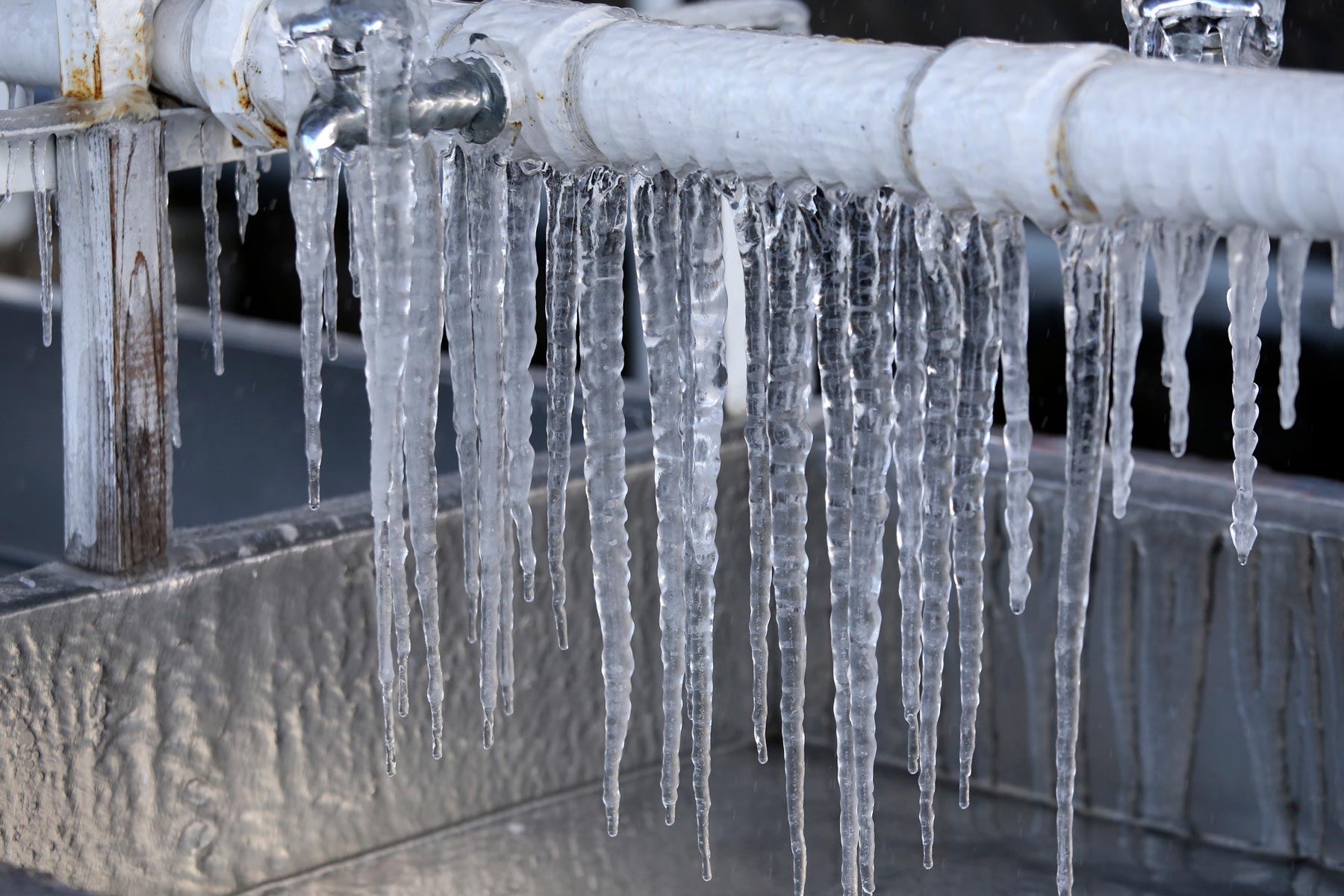Tips to Maintain Your Pipes from Freezing Issues: Crucial Guidance
Click HereAre you currently searching for resources about 6 Ways to Prevent Frozen Pipes?

Cold weather can ruin your plumbing, particularly by freezing pipes. Here's exactly how to stop it from happening and what to do if it does.
Introduction
As temperature levels decline, the danger of icy pipes increases, potentially leading to costly repairs and water damages. Recognizing exactly how to prevent frozen pipes is crucial for home owners in chilly environments.
Prevention Tips
Insulating at risk pipes
Cover pipelines in insulation sleeves or use warm tape to protect them from freezing temperature levels. Focus on pipelines in unheated or exterior locations of the home.
Home heating techniques
Maintain interior areas adequately heated up, specifically areas with pipes. Open cabinet doors to allow cozy air to flow around pipes under sinks.
Just how to identify frozen pipelines
Seek reduced water circulation from taps, unusual odors or sounds from pipelines, and visible frost on subjected pipes.
Long-Term Solutions
Structural changes
Think about rerouting pipelines away from exterior walls or unheated areas. Add extra insulation to attics, cellars, and crawl spaces.
Upgrading insulation
Buy top quality insulation for pipelines, attic rooms, and walls. Proper insulation aids preserve consistent temperatures and lowers the danger of frozen pipelines.
Protecting Exterior Plumbing
Yard hose pipes and outdoor taps
Disconnect and drain yard hose pipes prior to wintertime. Install frost-proof spigots or cover exterior faucets with protected caps.
Understanding Frozen Pipelines
What creates pipes to freeze?
Pipelines ice up when exposed to temperatures listed below 32 ° F (0 ° C) for expanded periods. As water inside the pipes freezes, it broadens, taxing the pipeline wall surfaces and possibly causing them to burst.
Risks and damages
Frozen pipes can cause water disruptions, property damages, and pricey fixings. Ruptured pipes can flood homes and cause extensive architectural damages.
Signs of Frozen Pipes
Recognizing icy pipes early can prevent them from breaking.
What to Do If Your Pipes Freeze
Immediate activities to take
If you presume frozen pipelines, keep taps available to alleviate stress as the ice thaws. Make use of a hairdryer or towels soaked in warm water to thaw pipelines gradually.
Final thought
Protecting against icy pipes requires positive steps and fast feedbacks. By comprehending the causes, indications, and safety nets, property owners can shield their pipes throughout cold weather.
Helpful Tips to Prevent Frozen Pipes this Winter
UNDERSTANDING THE BASICS: WHY PIPES FREEZE AND WHY IT’S A PROBLEM
Water freezing inside pipes is common during the winter months, but understanding why pipes freeze, and the potential problems it can cause is crucial in preventing such incidents. This section will delve into the basics of why pipes freeze and the associated problems that may arise.
THE SCIENCE BEHIND FROZEN PIPES
When water reaches freezing temperatures, it undergoes a physical transformation and solidifies into ice. This expansion of water as it freezes is the primary reason pipes can burst. As the water inside the pipe freezes, it expands, creating immense pressure on the walls. If the pressure becomes too great, the pipe can crack or rupture, leading to leaks and water damage.
FACTORS THAT CONTRIBUTE TO PIPE FREEZING
Low Temperatures: Extremely cold weather, especially below freezing, increases the risk of pipes freezing. Uninsulated or Poorly Insulated Pipes: Pipes located in unheated areas, such as basements, crawl spaces, or attics, are more prone to freezing. Insufficient insulation or lack of insulation altogether exacerbates the problem. Exterior Wall Exposure: Pipes running along exterior walls are susceptible to freezing as they encounter colder temperatures outside. Lack of Heating or Temperature Regulation: Inadequate heating or inconsistent temperature control in your home can contribute to frozen pipes. PROBLEMS CAUSED BY FROZEN PIPES
- Pipe Bursting: As mentioned earlier, the expansion of water as it freezes can cause pipes to burst, resulting in significant water damage.
- Water Damage: When pipes burst, it can lead to flooding and water damage to your property, including walls, ceilings, flooring, and personal belongings.
- Structural Damage: Prolonged exposure to water from burst pipes can compromise the structural integrity of your home, leading to costly repairs.
- Mold and Mildew Growth: Excess moisture from water damage can create a favorable environment for mold and mildew growth, posing health risks to occupants.
- Disrupted Water Supply: Frozen pipes can also result in a complete or partial loss of water supply until the issue is resolved.
WHY CERTAIN PIPES ARE MORE PRONE TO FREEZING
- Location: Pipes located in unheated or poorly insulated areas, such as basements, crawl spaces, attics, or exterior walls, are at higher risk of freezing.
- Exterior Pipes: Outdoor pipes, such as those used for irrigation or exposed plumbing, are particularly vulnerable to freezing as they are directly exposed to the elements.
- Supply Lines: Pipes that carry water from the main water supply into your home, including the main water line, are critical to protect as freezing in these lines can affect your entire plumbing system.
- Underground Pipes: Pipes buried underground, such as those connected to sprinkler systems or outdoor faucets, can be susceptible to freezing if not properly insulated.
https://busybusy.com/blog/helpful-tips-to-prevent-frozen-pipes-this-winter/

Do you like reading about How to prepare your home plumbing for winter weather? Create a short review down the page. We will be happy to hear your feelings about this entry. Hoping to see you back again before long. Do you know another person who is inquisitive about Winter Plumbing Precautions: Preventing Frozen Pipes? Do not hesitate to promote it. Many thanks for going through it.
Call Today